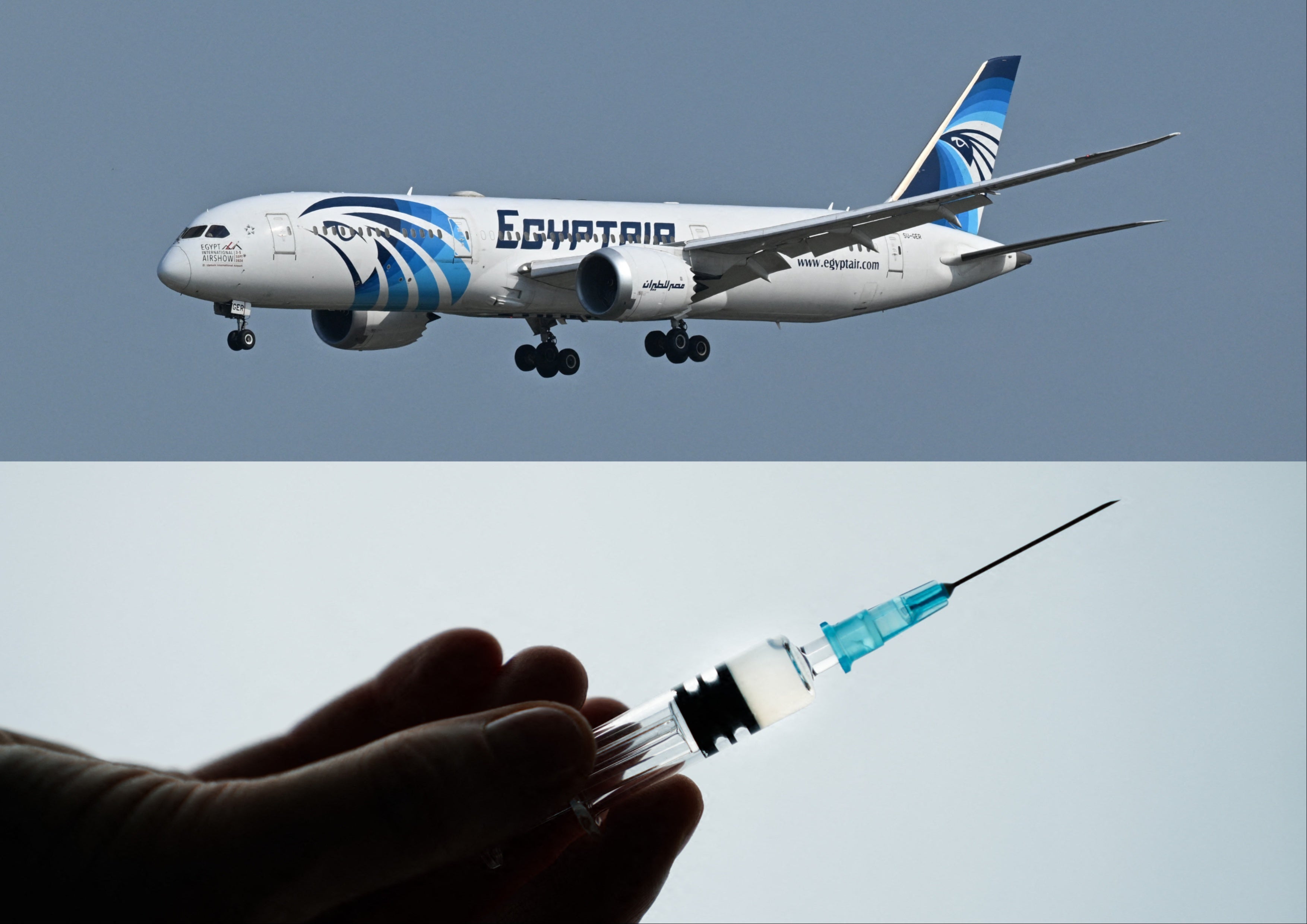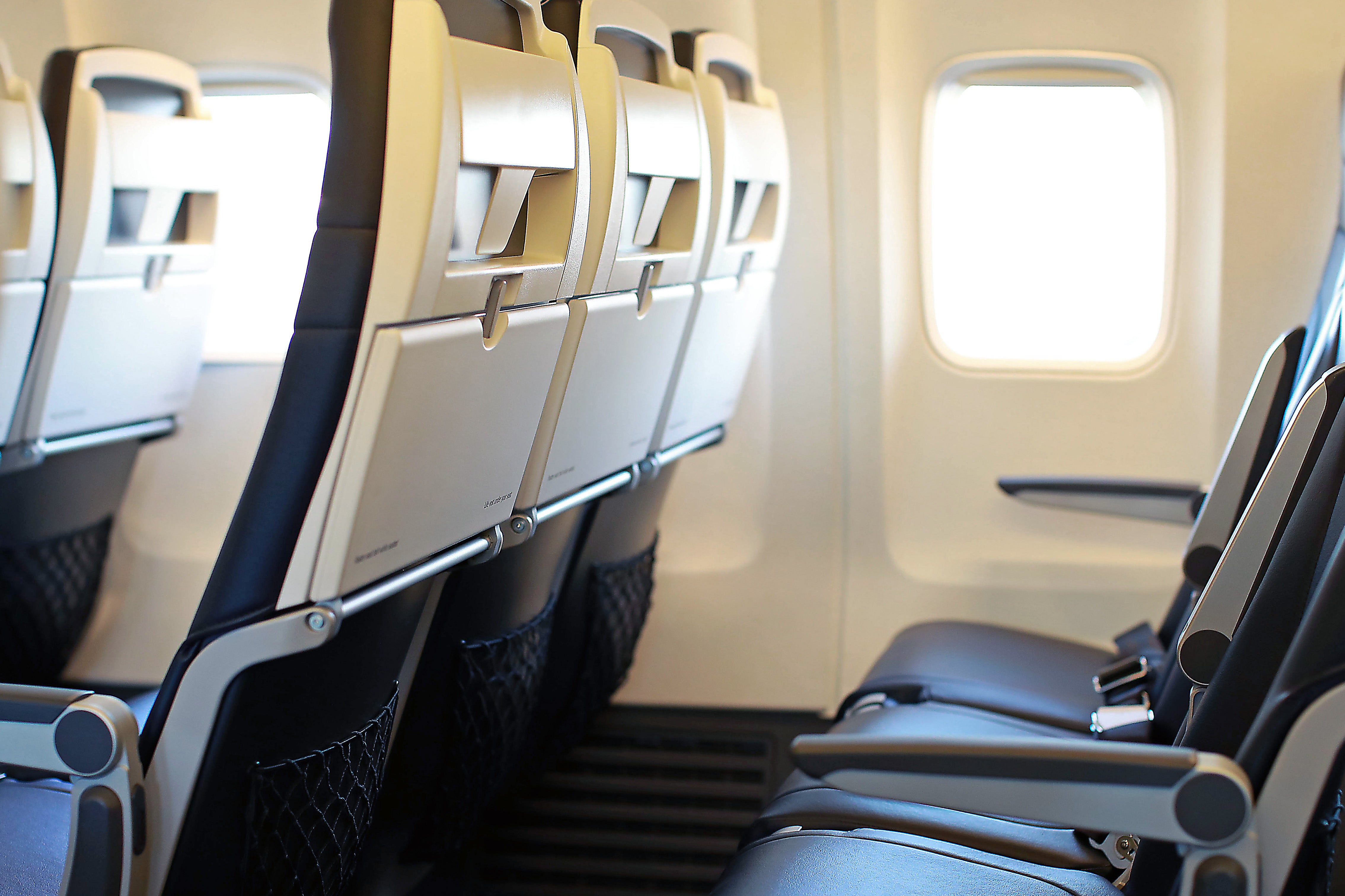A Virginia man flying back to the United States from Egypt feared for his life after reaching into his seatback pocket and pricking his hand on a stray hypodermic needle, enduring, among other things, “mental distress,” “shock” and “outrage” about having possibly contracted a deadly disease.
That’s according to a $5 million federal lawsuit obtained by The Independent, which says the 40-something Charlottesville resident, who is anonymized as “John Doe” in court papers, faced “months of uncertainty” when EgyptAir refused to identify the person who had sat in the seat prior.
Doe, a military veteran, had “hoped that his good faith efforts to identify and contact the previous passenger would provide him with information to better determine whether he needed to embark on a months-long regimen of prophylactic injections and therapy” in an attempt to stave off HIV, hepatitis or another potentially fatal condition, his complaint states.
But, it contends, despite Doe’s “best efforts,” EgyptAir “did not respond to [Doe’s] inquiries, nor provide him with any information necessary to avoid said therapies.”
This had a severe impact on Doe’s marriage, according to attorney Abram Bohrer, who said his client was unable to have intimate contact with his wife until rounds of post-exposure treatment were completed and he received a clean bill of health.

“The airlines have absolutely perfected the art of dehumanizing their customers,” Bohrer told The Independent. “Think about the level of anxiety that this man had to live with, over the course of months, until he got a final result.”
An EgyptAir spokesperson did not respond on Thursday to a request for comment.
Doe’s saga began on October 16, 2024, when he boarded EgyptAir flight MS981 from Cairo to Washington, D.C., according to the complaint, which was filed last week in Alexandria, Virginia, federal court.
At some point during the 12-hour flight, Doe “sustained a puncture injury from a hypodermic needle left in the seatback pocket in front of him, presumably from a previous flight and passenger,” the complaint states.
It says the needle stuck Doe in his hand, “causing physical injury and significant emotional distress,” while absolving him of any personal blame, as the needle “was not [Doe’s] property, nor did [he] place or leave the hazardous item in the seatback pocket.”
EgyptAir is responsible for cleaning the cabin – including the seatback pockets – between flights, and has a duty to “remove any and all hazardous objects that pose a potential risk of harm to subsequent passengers,” the complaint argues.
Instead, the needle-stick put Doe through “months of uncertainty about whether he had contracted one or more dangerous and communicable diseases,” accompanied by “months of painful injections,” according to the complaint.

The complaint says this was “coupled with the attendant mental distress, shock, mortification, fear of sickness and illness, outrage and embarrassment… of possible exposure to HIV, hepatitis and other pathogens,” on top of Doe’s medical costs and the “impact to his marriage.”
Doe has since been given the all-clear by his doctors, “by the grace of God,” Bohrer told The Independent.
In 2017, a Delta passenger sued after allegedly being stuck by a hypodermic needle in a seatback pocket aboard a flight from Los Angeles to Atlanta. In court papers, the man said he was given powerful anti-viral meds that led to headaches, bodyaches and “explosive diarrhea,” and that he was unable to perform “his duties as a husband to his wife for months.”
Four years earlier, a Michigan woman flying Etihad Airways from Abu Dhabi to Chicago sued after being pricked in the finger by a hypodermic needle left in a seatback pocket. The woman, who was identified in court documents as Jane Doe, was later placed on a protocol of “powerful drugs” to reduce her risk of contracting HIV and was tested for “several forms” of hepatitis, her lawsuit said.
When treatment is started within 72 hours, post-exposure prophylaxis has a success rate of more than 80 percent, according to the National Institutes of Health.
John Doe’s complaint against EgyptAir says his $5 million demand constitutes “full, fair and reasonable damages,” and that the airline is responsible for what happened.
He is asking for a jury trial.







